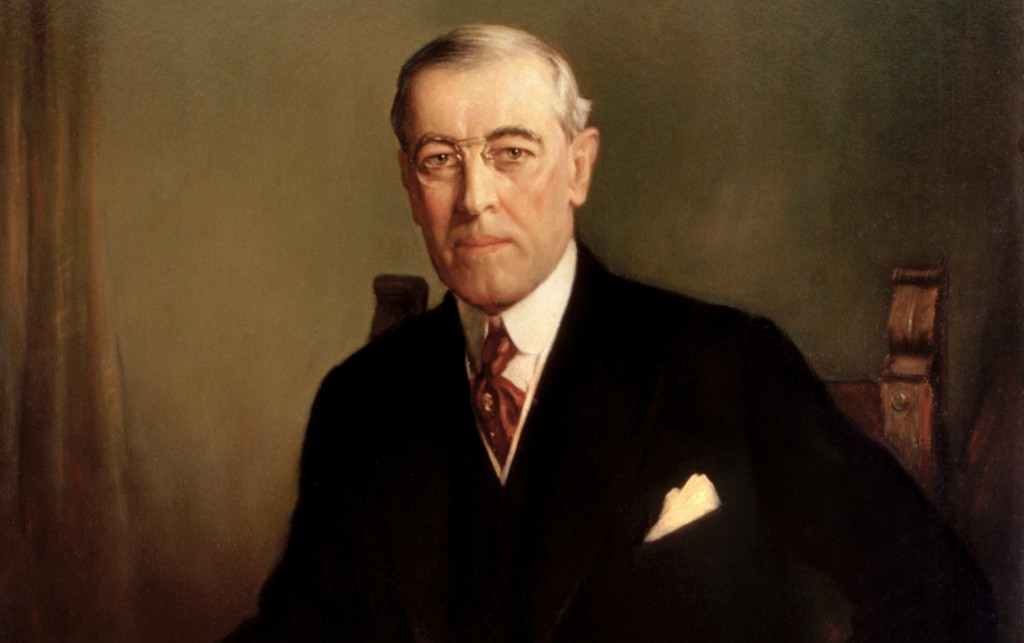Thomas Woodrow Wilson who was born on December 28, 1856, and died on February 3, 1924, was an American politician, professor and democratic, who became the 28th president of the United States, after the 1912 presidential election and became the president from 1913-1921.
World War I
Woodrow Wilson modified the nation’s economic policies while serving as president. Although he was a man of peace, he steered the country into World War I in 1917 after having stayed off the war for nearly three years.
On April 2, 1917, President Woodrow Wilson requested a declaration of war against Germany in front of a joint session of Congress. Wilson highlighted Mexico’s attempts to form an alliance against the United States as well as Germany’s breach of its agreement to halt unrestricted submarine warfare in the North Atlantic and the Mediterranean as justifications for going to war.
On April 4, 1917, the U.S. Senate voted in support of the measure to declare war on Germany. The House concurred two days later. The United States later declared war on German ally Austria-Hungary on December 7, 1917. The first World war or the Great World war took place from 28 July 1914 till November 11 1918.
Contemporary American Liberalism

Woodrow Wilson’s idea also called the 14-point Agenda which he delivered in front of Congress during the Great world war is one of the speeches that still stands as the bedrock of several international organizations, despite the United state congress, at that point in time, failed to accept his idea of the United States of America joining the league of Nations. Woodrow Wilson addressed the nation thirty-three times. He was a major player in the development of contemporary American liberalism and had a significant impact on presidents like Franklin D. Roosevelt and Lyndon B. Johnson.
The number of times, years and headings of Woodrow Wilson’s address to Congress and the people.
- March 4, 1913: First Inaugural Address
- April 8, 1913: Message Regarding Tariff Duties
- June 23, 1913: Message Regarding Banking System
- July 4, 1913: Address at Gettysburg
- October 25, 1913: Address at Congress Hall, Philadelphia
- December 2, 1913: First Annual Message
- January 20, 1914: Address to a Joint Session of Congress on Trusts and Monopolies
- December 8, 1914: Second Annual Message
- April 20, 1914: Message Regarding Tampico Incident
- May 30, 1914: Memorial Day Address
- July 4, 1914: Fourth of July Address
- August 19, 1914: Message on Neutrality
- October 20, 1914: “The Opinion of the World” Speech
- January 28, 1915: Veto of Immigration Legislation
- December 7, 1915: Third Annual Message
- April 19, 1916: Message Regarding German Actions
- September 2, 1916: Speech of Acceptance
- September 3, 1916: Speech Accepting the Democratic Nomination
- September 9, 1916: Message Regarding Women’s Suffrage
- December 5, 1916: Fourth Annual Message
- January 22, 1917: “A World League for Peace” Speech
- February 3, 1917: Message Regarding US-German Relations
- February 26, 1917: Message Regarding the Safety of Merchant Ships
- March 5, 1917: Second Inaugural Address
- April 2, 1917: Address to Congress Requesting a Declaration of War Against Germany
- April 17, 1917: Message Regarding World War I
- April 6, 1917: Proclamation 1364
- May 19, 1917: Message Regarding Military Draft
- December 4, 1917: Fifth Annual Message
- January 8, 1918: Wilson’s “Fourteen Points”
- December 2, 1918: Sixth Annual Message
- December 2, 1919: Seventh Annual Message
- December 7, 1920: Eighth Annual Message
WOODROW WILSON IDEAS
Woodrow Wilson’s ideas and speeches centre on issues that can proper peace, equality and freedom not only for Americans but the world generally.
1. Freedom
One of the main ideas of Woodrow Wilson is freedom in all ramifications, that is whether political, economic or social, he believes that justice, peace and freedom are extremely important. For instance, in his speech on April 2, 1917, he said:
“Our object now, as then, is to vindicate the principles of peace and justice in the life of the world against selfish and autocratic power and to set up among the really free and self-governed peoples of the world such a concert of purpose and of action as will henceforth ensure the observance of those principles.”
2. Practical Democracy
Also, Woodrow Wilson’s ideas focus on how the world must be made safe for democracy. Addressing Congress on April 2 1918 he said:
“peace must be planted upon the tested foundations of political liberty. We have no selfish ends to serve. We desire no conquest, no dominion. We seek no indemnities for ourselves, no material compensation for the sacrifices we shall freely make. We are but one of the champions of the rights of mankind. We shall be satisfied when those rights have been made as secure as the faith and the freedom of nations can make them”.
3. Equality
The removal, so far as possible, of all economic barriers and the establishment of an equality of trade conditions among all the nations consenting to the peace and associating themselves for its maintenance. Woodrow Wilson made this part of his speeches on April 2, 1918.
All these factors are still part of the main principles of world organizations like the U.N.O, NATO, EU etc. However for his tremendous ideas he was awarded the Nobel peace prize in 1920.


